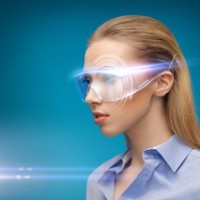Students are back in school, and they have a lot to look forward to this fall. Schools that are aligned with the Common Core State Standards have now fully implemented new curriculum, and students will take standardized testing that assesses knowledge of the CCSS benchmarks in the spring. However, the most exciting changes are still in the works. Technology is playing an increasingly important role in classrooms, as teachers introduce gamification principles and schools purchase more gadgets. More thrilling still is that in the near future, virtual reality could usher students through their education.
Rise of the Rift
Palmer Freeman Luckey was an 18-year-old homeschooler when he invented the first version of the Oculus Rift virtual reality system. With his idea in the works, Luckey launched a Kickstarter campaign in 2012 to fund the development of his VR device. The move was successful, earning Luckey and his partners millions of dollars toward the growth of their company and product.
In spring 2014, Facebook purchased Oculus Rift for $2 billion, allowing Luckey and his team to fully fund their endeavors. Now known as Oculus VR, the device has led many to believe that virtual reality will finally become a mainstream reality.
Oculus for education
What does virtual reality have to do with classrooms? Luckey recently said in an email that Oculus VR has plans around education. While it's difficult to say exactly what these plans entail, the founder also noted that the company may some day give free devices to schools.
"We want to get these into as many hands as possible, especially the people who are learning how to build the future!" Luckey said in the email.
Some have speculated on the potential uses of the Oculus VR in education. For instance, students could take virtual field trips to places they'd otherwise never see. An example would be learning about the Great Wall of China and walking on a virtual version during the lesson. Additionally, students could complete science experiments in a virtual format. The possibilities are numerous, and each reflects the idea that kids can learn through interaction.
"Kids don't learn best from reading a book or looking at a chalkboard," Luckey said during a Google Hangout hosted by the White House. "It's going to take these things that are impossible to do today and make them a part of everyday education."
Oculus could even make an impact on special education. According to Education Week, Mathieu Marunczyn, a special education teacher out of Victoria, Australia, who got to test the device with his students, said their overall experience with the Oculus VR was "awesome." He said it allowed kids to engage with learning in a fun and calming environment.


No comments yet.